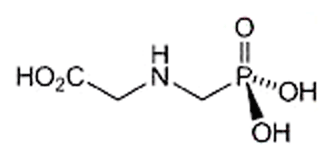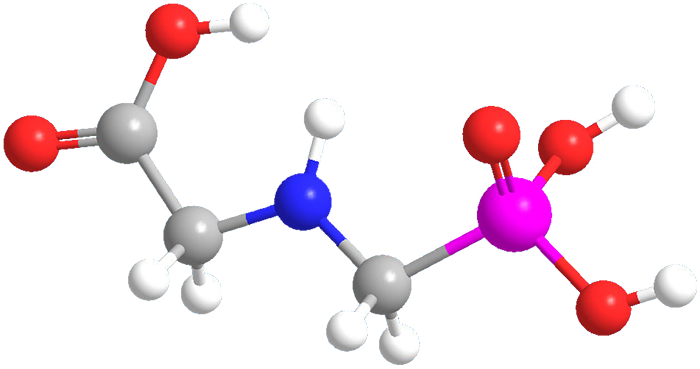

Glyphosate, or N-(phosphonomethyl)glycine, was originally developed as a corrosion inhibitor, but it has been the world’s most widely used herbicide for almost 40 years. Monsanto patented it in the early 1970s and began to sell it under the trade name Roundup. More recently, the company developed glyphosate-resistant transgenic crop seeds. But competition has hurt Roundup, and Monsanto has announced cutbacks associated with this business unit.
MOTW update: November 27, 2017
For decades, glyphosate has been a widely used herbicide, but in recent years pesticide applicators have claimed that exposure to it caused non-Hodgkins lymphoma. This past week, however, the results of a study on 54,000 workers showed that there is no significant association between glyphosate exposure and cancer—with the possible exception of multiple myeloma, which may the the focus of future studies.
MOTW update:
December 4, 2023
Glyphosate1 was the Molecule of the Week for October 5, 2009. It has been a widely used broadleaf herbicide for more than 40 years. In the 2010s, it was suspected of causing non-Hodgkins lymphoma in farm workers; but in 2017, a long-term, 54,000 subject study found no connection between glyphosate use and cancer. Last month, the European Commission announced that glyphosate can remain on the market in the European Union for 10 years with new restrictions, including a ban on use of the chemical to dry crops before harvest and measures to protect nontarget species.
1. CAS Reg. No. 1071-83-6.

Learn more about this molecule from CAS, the most authoritative and comprehensive source for chemical information.
Molecule of the Week needs your suggestions!
If your favorite molecule is not in our archive, please send us a message. The molecule can be notable for its current or historical importance or for any quirky reason. Thank you!
Stay Ahead of the Chemistry Curve
Learn how ACS can help you stay ahead in the world of chemistry.

